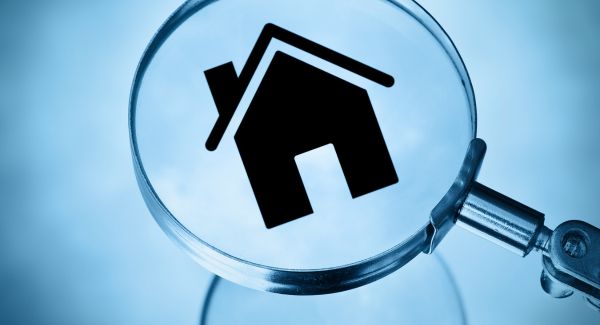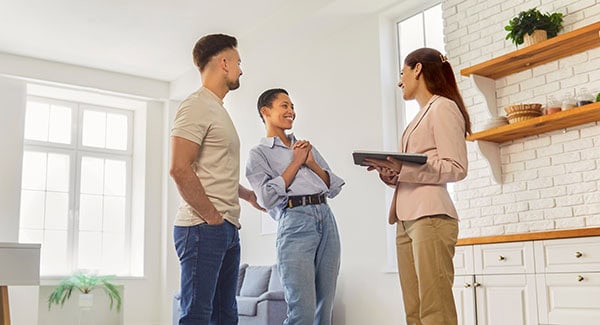
Last Updated on December 7, 2023
When you’re trying to decide which home improvement project will have the biggest impact on your home value, it pays to look at the roof, windows, and HVAC.
While there are a few factors that play into how much value you get from replacing or repairing any of these “big three” elements, it’s a good idea to take a look at each option and determine whether it makes sense for your situation.
Windows
They have an immediate impact on curb appeal and can either help or hurt your utility bills. There’s no denying windows play a major role in how attractive your home is to potential buyers.
The National Association of Realtors Remodeling Impact Report ranks new vinyl windows second in home improvement projects with the biggest impact. But is it worth the notable expense to get all-new windows? That depends on where you live, how old your windows are, and what type of improvement you’re looking at.
The age of the windows is one of the most important factors to consider. High-quality, well-maintained windows can last 20-plus years. Even if you know your windows are younger than 20 years, or if you have no idea how old your windows are, it’s important to look for signs of aging like moisture between the panes, stickiness, warping, visible rot, and draftiness (if the curtains blow out when the windows are closed, you have a draft).
Areas with extreme weather conditions on either end of the spectrum can really beat up on windows, which means they may need to be replaced sooner than the average windows. Well-maintained windows and certain materials, such as vinyl, tend to have longer life spans.
These issues in windows that are less than 15 years old may be remedied with a repair job rather than a full replacement. Repairing a single-pane glass window costs $75-80 on average, compared to anywhere between $200 to $1,800 for full replacement.
Regardless of the factors that affect whether windows need to be repaired or replaced, there are some undeniable perks to taking on this project. First, nice windows can do wonders for curb appeal. If your windows are in disrepair, or if they’re making your house look dated, an upgrade can make all the difference. Even in the back, a fresh bay window can show off a great backyard and let in more natural light.
Another huge perk of new windows is energy efficiency. (Did you hear that “cha-ching?”) The Environmental Protection Agency reports that switching from single-pane to Energy Star windows saves on average $126 to $465 each year. Ideally, homeowners would replace their windows a few years before putting their home on the market so they can benefit from shrinking utility bills and possibly even enjoy a discount on their homeowners insurance.
If you decide new windows are worth it, it’s important to use materials that are the same or higher in quality than what you currently have. If you skimp too much on materials, your replacement job could actually hurt your curb appeal and make your home less attractive to potential buyers.
Heating, Ventilating, and Air Conditioning
Just because HVAC is known as the “invisible upgrade” doesn’t mean it’s not an essential factor in the value of your home. Like windows, the amount of impact that your HVAC system has on your home value, and whether it’s worth it to spend a considerable chunk of change on replacing it, depends on a few factors.
First, the age of the HVAC system matters, as Realtors, and in turn their clients, will most likely know where your system stands once they see its age in your disclosure statements. Even if you’ve worked hard to maintain your HVAC system and it’s working well, an aging system (ten years and up) could be a turn off to potential buyers who know they’re going to be stuck with replacing it.
Another factor that affects how much an HVAC system affects home value is location. The U.S. Energy Information Association reports that 94% of households in the south use air conditioning, compared to just 50% in the Pacific Northwest. The local climate makes a difference in the role the HVAC system plays in buyers’ priorities and wish lists.
The third factor that determines how much the HVAC system impacts home value is energy efficiency. Buyers want to know they’re saving as much as possible on their utility bills, as this is an ongoing expense and annual savings add up over time. If your home has an energy efficient HVAC system, that is a selling feature worth promoting, and it could edge your house above comparable properties in your market.
The bottom line: if your HVAC system is ten years or older and you live in a warmer climate, it could be worth it to get a new system. Get recommendations and input from your Realtor and HVAC professionals before making a decision, and make sure you get an energy-efficient system to maximize the impact on your home value. Check out this list of the most energy-efficient central air conditioners and heat pumps for 2023 from Energy Star.
If your HVAC system is less than ten years old and in good condition, make sure you keep it well maintained and hold on to all service records so you can share them with buyers. When they see that you’ve taken the time and effort to maintain your HVAC system, they’re more likely to trust that you’ve taken good care of the entire house.
Roof
Does a new roof impact home values? Yes. Does that mean you should definitely replace your roof before you list your house? That depends.
While potential buyers may have many different opinions on what they want in a master bath or a kitchen, they tend to be less opinionated about the roof. As long as it is in good condition and not nearing the end of its lifespan, buyers will likely accept the roof as-is.
On the other hand, an aging or leaking roof needs to be replaced if you want your house to be attractive to buyers. Marketing your home with a new roof will give buyers the peace of mind of knowing they don’t have to take on a big, expensive project right after they move in.
Some areas require roofing disclosures for real estate transactions, and some federal programs, like Veterans Affairs loans and Federal Housing Administration Loans, require certifications stating that the roof will be in good condition for at least the next two years.
For these reasons, not to mention how a roof in poor condition impacts curb appeal, you can expect a good return on your investment when you replace an aging or leaking roof.
If you’re on the fence (so to speak) about whether your roof requires a full replacement or you can get by with a repair, talk to your real estate agent and get quotes from several roofing professionals. Your agent knows the local market and can give you input on how the roof will impact your chances at getting competitive offers. Getting quotes from several roofing professionals will give you an idea of the investment required for repair or replacement.
If you do decide to get a new roof, you’ll get the best return on investment if you choose materials that match other homes in your neighborhood. You know that old adage that it’s not good to have the most expensive house on the block? The same goes for your roof. If you put high-end materials on the roof of a starter home, you’re limiting how much your roof will increase the home value, because the value is not likely to rise much higher than the houses surrounding you.
If this list of “the big three” inspires you to upgrade some of your home’s major systems, sign up to receive a free home physical first! Our real estate experts can walk you through your project and discuss ROI when it comes time to sell.



